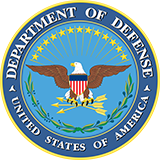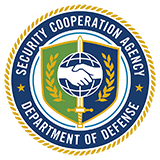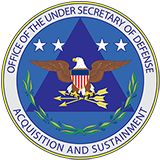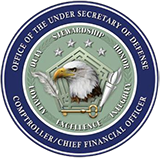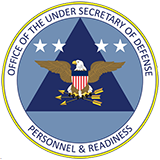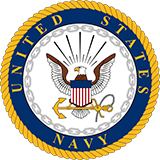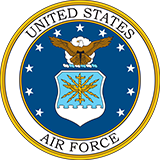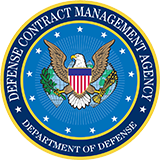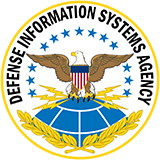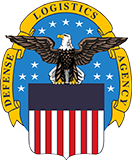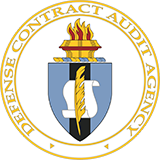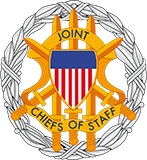Chapter 1, Security Cooperation Overview and Relationships, defines security cooperation (SC) and security assistance (SA), and summarizes the key legal authorities for, and roles and responsibilities of other agencies in, the provision of SA. It also restates the roles and responsibilities of DoD organizations in providing SC.
Section | Title |
|---|---|
C1.1. | |
C1.2. | |
C1.3. | Authorities, Roles, Responsibilities, and Relationships - General |
C1.1.1. Definition and Purpose. Security cooperation (SC) comprises all activities undertaken by the DoD to encourage and enable international partners to work with the United States to achieve strategic objectives. It includes all DoD interactions with foreign defense and security establishments, including all DoD-administered security assistance (SA) programs, that build defense and security relationships; promote specific U.S. security interests, including all international armaments cooperation activities and SA activities; develop allied and friendly military capabilities for self-defense and multinational operations; and provide U.S. forces with peacetime and contingency access to host nations. It is DoD policy that SC is an important tool of national security and foreign policy and is an integral element of the DoD mission. SC activities shall be planned, programmed, budgeted, and executed with the same high degree of attention and efficiency as other integral DoD activities. SC requirements shall be combined with other DoD requirements and implemented through standard DoD systems, facilities, and procedures. See DoD Directive 5132.03.
C1.1.2. Distinguishing Between Security Cooperation and Security Assistance Programs. As the definition of SC above reveals, there are many types of SC activities. For the purposes of this Manual, it is important to be able to distinguish between SC programs and SA programs. Programs of both types are the means by which the United States provides defense articles, military training, and other defense services to our partner nations in support of U.S. national security objectives, including Building Partner Capacity (BPC). They are distinguished by the statutes by which they are authorized and funded.
C1.1.2.1. Security Cooperation Programs. SC program authorizations and appropriations are provided to the Secretary of Defense primarily under the annual National Defense Authorization Act (NDAA) and appropriations acts. By statute or Executive Order (EO), they are sometimes required to be exercised in coordination with the Secretary of State. These programs vary greatly in terms of the agency or DoD activity responsible and the manner in which they are planned for and funded. See Chapter 11 and Appendix 8 for more detailed information on individual programs.
C1.1.2.2. Security Assistance Programs. SA is a group of programs, authorized under Title 22 authorities, by which the United States provides defense articles, military education and training, and other defense-related services by grant, loan, credit, cash sales, or lease, in furtherance of national policies and objectives. All SA programs are subject to the continuous supervision and general direction of the Secretary of State to best serve U.S. foreign policy interests; however, programs are variously administered by DoD or Department of State (State). Those SA programs that are administered by DoD are a subset of SC.
C1.2.1. Legislative Authorities for Security Assistance. Security assistance (SA) authorizations and appropriations are provided primarily under three public laws:
Each year, the Administration submits an SA appropriations budget request as part of the President’s budget submission. The Administration may also request legislative amendments to authorization and appropriations laws from Congress. Congress reviews requests, authorizes and appropriates funds, and enacts necessary legislative amendments for carrying out SA programs. Appropriations may also be requested to reimburse the DoD for the value of items furnished under Military Assistance Drawdown. In the event appropriations are not enacted prior to the beginning of the fiscal year essential activities are usually carried out under a Continuing Resolution Authority (CRA). The CRA is a temporary or stopgap appropriation made by Congress and contains special rules for expenditures.
C1.2.2. Legislative Authorities for Security Cooperation. Security cooperation (SC) authorizations and appropriations are provided primarily under annual DoD Appropriations Acts, Supplementals, and a range of other Title 10 provisions. These authorities and programs are discussed in detail in Chapter 11 and Appendix 8.
C1.2.3. Executive Orders for Security Assistance. Detailed SA delegations are also found in Executive Order (E.O.) 13637. This EO allocates authority and responsibility for SA principally to the Secretary of Defense and the Secretary of State. The Secretary of Defense authority is further delegated to the Deputy Secretary of Defense, to the Under Secretary of Defense for Policy (USD(P)), and finally to the Director, DSCA, in DoD Directive 5105.65.
C1.2.4. Regulations, Directives, Instructions, and Manuals for Security Cooperation.
C1.2.4.1. SC activities must be in compliance with law, this Manual and additional policy guidance issued by DSCA, the Secretary of Defense, and the Secretary of State. Implementing Agencies (IAs) may supplement this Manual with internal regulations or policy guidance covering details unique to their organizations. Supplements must be consistent with this Manual. Information copies of the supplements must be sent to DSCA (Office of Strategy, Plans, and Policy (SPP)).
C1.2.4.2. Other DoD regulations and manuals that cover specific program details relating to SC are referenced throughout this Manual. Identify any inconsistencies between these regulations and this Manual to DSCA (SPP) for resolution.
Congress authorizes and appropriates funds for the USG-financed portions of security assistance (SA). Congress has a keen interest in the sale and transfer of defense articles and services to foreign countries and international organizations. Executive Branch agencies such as the National Security Staff, the Office of Management and Budget (OMB), the Department of the Treasury, and others have responsibilities related to SA. However, aside from the President, the principal legislated responsibilities fall to the Department of State (State) and the DoD.
C1.3.1. Department of State.
Under the Foreign Assistance Act (FAA), Arms Export Control Act (AECA), and Executive Order (EO) 13637 the Secretary of State (SECSTATE) is responsible for continuous supervision and general direction of SA programs. This includes determining whether (and when) there will be a program or sale for a particular country or activity (to include International Military Education and Training (IMET)) and, if so, its size and scope. It also includes the determination of budget requests and allocation of funds for military assistance. State reviews and approves export license requests for direct commercial sales of items on the United States Munitions List (USML) of the International Traffic in Arms Regulations (ITAR). State also reviews and approves third party transfers of exported defense articles and services. State ensures FAA, section 503 (22 U.S.C. 2311) eligibility and obtains the assurances from recipient countries and organizations required by FAA, section 505(22 U.S.C. 2314) prior to most grant transfers of defense articles. State prepares the Mission Strategic Resource Plan (MSRP) and reviews and submits to Congress the Congressional Budget Justification (CBJ), which includes an annual estimate of the total amount of sales and licensed commercial exports expected to be made to each foreign nation as required by AECA 25(a)(2) (22 U.S.C. 2765(a)(2)), and annual arms sale proposal (Javits Report) as required by AECA 25(a)(1) (22 U.S.C. 2765(a)(1)).
C1.3.2. Department of Defense Organizations.
The Secretary of Defense (SECDEF) establishes military requirements and implements programs to transfer defense articles and services to eligible foreign countries and international organizations. Within DoD, the principal responsible agencies for security cooperation (SC) are DSCA, the Combatant Commands (CCMDs), the Joint Staff (JS), the Security Cooperation Organizations (SCOs), and the Military Departments (MILDEPs).
C1.3.2.1. Under Secretary of Defense for Policy. The Under Secretary of Defense for Policy (USD(P)) serves as the principal staff assistant and advisor to the SECDEF on SC matters. In that capacity, USD(P) develops and coordinates DoD guidance which disseminates SECDEF SC goals and priorities; develops and coordinates DoD campaign plan policy and assessment guidance; provides oversight and review of regional and functional campaign plans and assessments; oversees and advises the DoD Components on the development of campaign plans and campaign support plans and resource allocation priorities; evaluates completed campaign plan assessments, campaign support plan assessments, and SC program assessments and advises the SECDEF on the effectiveness of DoD SC efforts; articulates SECDEF SC goals, policies, and priorities to other USG agencies to help shape national security objectives and enable greater unity of effort; determines priorities for diversion of materiel and equipment in consultation with the Director, DSCA; develops, coordinates, and disseminates the Guidance for the Employment of the Force (GEF), including the assessment guidance, which outlines SECDEF SC goals; oversees the direction and administration of DoD-wide policy guidance for the execution of SA and additional DoD SC programs; represents SECDEF interests in SC matters and serves as the DoD point of contact and representative for SC; in coordination with the Director, Cost Assessment and Program Evaluation Office (CAPE), oversees and conducts programmatic level assessments and conducts all SC program assessments; in coordination with the Under Secretary of Defense for Research and Engineering (USD(R&E)) and the Director, DSCA, as appropriate, leads the development of technology security and foreign disclosure and sales policies and procedures for defense information, technology, and systems via the Director, Defense Technology Security Administration (DTSA). See Department of Defense Directive (DoDD) 5111.01.
C1.3.2.2. Defense Security Cooperation Agency.
DSCA directs, administers, and provides guidance to the DoD Components and DoD representatives to U.S. missions, for the execution of DoD SC programs for which DSCA has responsibility. DSCA ensures Secretary of Defense and USD(P) interests in SA matters are represented; identifies requirements, criteria, and procedures for the selection and training of personnel engaged in SA activities in DoD SC programs over which DSCA has responsibility; communicates directly with the heads of the DoD Components on SC matters over which DSCA has responsibility; in coordination with the USD(P) and the USD(R&E), as appropriate, supports the development of technology security and foreign disclosure and sales policies and procedures for defense information, technology, and systems; jointly establishes appropriate agreements and procedures with the Director, Defense Intelligence Agency (DIA), and with the CCMDs for Senior Defense Officials (SDOs) and Defense Attachés (DATTs) to provide guidance and oversees SC programs for which DSCA is responsible, in accordance with applicable laws and regulations; approves, in coordination with the Chairman of the Joint Chiefs of Staff (CJCS), SCO joint manpower programs involving the establishment of new SCOs or changes in manpower authorizations or organizational structure; jointly, with the Director of the DIA, approves changes to the grade or MILDEP affiliation of the SDO or DATT; reports to the Under Secretary of Defense for Personnel and Readiness (USD(P&R)) in the Defense Readiness Reporting System (DRRS) readiness of personnel for SA activities in DoD SC programs over which DSCA has responsibility; and acts as the Executive Agent (EA) for DoD Regional Centers for Security Studies. Authorities conferred on the SECDEF by the FAA and AECA pertaining to SA and authorities under those acts delegated by the President to the Secretary of Defense are further delegated through the USD(P) to the Director, DSCA. See DoDD 5105.65.
C1.3.2.3. Under Secretary of Defense for Acquisition and Sustainment.
The Under Secretary of Defense for Acquisition and Sustainment (USD(A&S)) is the principal staff assistant and advisor to the SECDEF for all matters relating to acquisition and sustainment in the DoD, including the DoD Acquisition System; system design and development; production; logistics and distribution; installation maintenance, management, and resilience; military construction; procurement of goods and services; materiel readiness; maintenance; environment and energy resilience (including renewable energy, as appropriate); utilities, renewable energy, and energy management; business management modernization; document services; nuclear, chemical, and biological defense programs; nuclear command, control and communications; and related matters. The USD(A&S) coordinates on all applicable DoD guidance; ensures conformance with international armaments cooperation and industrial collaboration; ensures that DoD logistics policy and procedures are effectively integrated with all applicable DoD guidance; provides advice to the USD(P) and the Director, DSCA, to accomplish the objectives of SC programs; establishes policies, in coordination with the USD(P), for the effective development of international acquisition and sustainment programs that support current SC goals. See DoDD 5135.02
C1.3.2.4. Under Secretary of Defense (Comptroller).
Under Secretary of Defense, Comptroller (USD(C)) establishes policies and procedures for SC activities involving financial management, fiscal matters, accounting, pricing, budgeting for reimbursements to DoD appropriation accounts and revolving funds, international payments, and matters affecting the DoD budget. See DoDD 5132.03.
C1.3.2.5. Under Secretary of Defense, Personnel and Readiness.
The USD(P&R) assists the Director, DSCA and the CJCS by developing and coordinating relevant input on SCO joint manpower programs involving the establishment of new SCO or changes in SCO manpower authorizations, organizational structure, or the grade, rank, or MILDEP affiliation of the Chief of the SCO; coordinates efforts to build regional, cultural, and language expertise among U.S. forces, including DoD international military and civilian personnel exchange programs, with the USD(P); and identifies, tracks, and assesses readiness of personnel with regional, cultural, and language expertise.
C1.3.2.6. Implementing Agencies. An Implementing Agency (IA) is the MILDEP organization (See Table C1.T1.) or defense agency (See Table C5.T2B.) responsible for the execution of SC programs. The IA is responsible for the overall management of actions for delivery of the materiel, supporting equipment, or services set forth in the SC programs and activities being provided to a foreign partner. In coordination with State, the Office of the Under Secretary of Defense for Policy (OUSD(P)) and DSCA, for all matters affecting or related to the respective department’s or agency’s support to the Combatant Commanders (CCDRs) concerning SC, IAs serve as advisors to the SECDEF. IAs provide, either through sales, grant, or lease, defense articles and defense services, including training, and provide International Military Education and Training (IMET) on a grant basis, to eligible foreign partners in accordance with policies and criteria established by State, the Office of the Secretary of Defense (OSD) and the Director, DSCA. IAs provide the technical information and other data, upon request, on weapons systems, tactics, doctrine, training, capabilities, logistic support, price, source, availability, and lead-time for developing and reviewing SC programs. IAs maintain appropriate records and furnish prescribed reports as requested. IAs provide qualified military and civilian personnel to carry out SC assignments according to approved tables of distribution and other authorizations, directives, and requests. Directives that govern IAs ensure conformance with technology transfer, classified military information release, and disclosure policies for their respective areas of responsibility while conducting SC activities. IAs also assist the Office of the Under Secretary of Defense for Acquisition and Sustainment (OUSD(A&S)) and the Director, DSCA, as requested, in government-to-government or interdepartmental discussions or negotiations involving SC. See Table C5.T2A. and Table C5.T2B. for a list of DoD organizations designated as IAs and/or organizations authorized to receive and action Letters of Request (LORs) for SA, and Memorandum Of Request (MORs) for the other SC programs. See Section C15.2.11. and Section C15-Legacy.2.13. (for programs as identified in the Chapter 15 introduction) for the MOR process.
C1.3.2.6.1. The Military Departments. In addition to authorizing organizations as IAs, with duties as described in Section C1.3.2.6., the MILDEPs also conduct international armaments cooperation with eligible partner nations and international organizations in accordance with policies and criteria established by State and the OUSD(A&S). MILDEPs also authorize certain other organizations to carry out SC duties at the direction of the IAs. The following MILDEP organizations lead their respective departments as IAs in support of the SC mission:
Table C1.T1. Military Department Implementing Agencies
MILDEP | IA |
|---|---|
Department of the Army (DA) | Office of the Deputy Assistant Secretary of the Army for Defense Exports and Cooperation (DASA (DE&C)) |
Department of the Navy (DoN) | Navy International Programs Office (NIPO) |
Department of the Air Force (DAF) | Deputy Under Secretary of the Air Force for International Affairs (SAF/IA) |
C1.3.2.6.1.1. The Department of the Army.
C1.3.2.6.1.1.1. Authorities. DA’s delegation of authority to fulfill the responsibilities related to SC is derived from DoDD 5132.03 and as directed by the Secretary of the Army (SECARMY). In accordance with Headquarters, DA (HQDA) General Order 2020-01, Assistant Secretary of the Army (Acquisition, Logistics and Technology) (ASA (ALT)) is responsible for SC and other related activities and general export matters. Army Regulation (AR) 12-1, Security Assistance, Training, and Export Policy, delegates responsibilities from the ASA (ALT) to DASA (DE&C) for select SC programs and activities.
C1.3.2.6.1.1.2. Roles. DA develops allied and partner defense and security capabilities and capacity for self-defense and multinational operations. The ASA (ALT) is the single office in HQDA responsible for setting the strategic direction for and overseeing DA policies and programs related to acquisition, logistics, technology, procurement, intellectual property, the industrial base, and SC not otherwise delegated (including security assistance and armaments cooperation). Subject to the authority, direction, and control of the ASA (ALT), the DASA (DE&C) is delegated responsibility for select SC activities. The DASA (DE&C), as the Army IA, works closely with two Army Commands and one Direct Report Unit (DRU): Army Material Command (AMC), Army Training and Doctrine Command (TRADOC), and U.S. Army Corps of Engineers (USACE) as a DRU to HQDA.
C1.3.2.6.1.1.3. Responsibilities. The DASA (DE&C) leads, manages, resources, and directs assigned elements of the Army’s global SC activities, including policy and strategy, for Foreign Military Sales (FMS), foreign military and foreign national training and education, international armaments cooperation, non-special access program (SAP) technology transfer, and export policy. The DASA (DE&C) ensures that all ASA (ALT) managed SC programs are conducted according to law and policy and has direct tasking authority over the Army’s designated commands for the execution of their delegated SC responsibilities. DA has three designated commands responsible for collaborating, synchronizing, and integrating pre-LOR/MOR, case development, and execution efforts. These commands are authorized to receive and respond to requests for information, pre-LOR/MOR requests, and LORs/MORs. U.S. Army Security Assistance Command (USASAC), under AMC, is responsible for approved SC, materiel programs (including defense articles and services, non-institutional training, and technical assistance). Security Assistance Training Field Activity (SATFA), under TRADOC, is responsible for approved SC institutional training, exercises, and Continental United States (CONUS) non-institutional travel and living allowance (TLA) support. USACE is responsible for approved SC (design, engineering, and construction of infrastructure and facilities) executed through FMS. The Program Executive Officers (PEOs) and Program Managers (PMs) are responsible for supporting the development and execution of approved FMS cases.
C1.3.2.6.1.2. The Department of the Navy.
C1.3.2.6.1.2.1. Authorities. NIPO manages DoN SC programs, including Title 10 Building Partner Capacity (BPC) and international agreements, as authorized by the FAA, the AECA, the DoDD 5132.03, and various authorization and appropriation acts. This authority includes managing participation in some international efforts by DoN organizational entities with SC responsibilities.
C1.3.2.6.1.2.2. Roles. The DoN advances global maritime alliances and partnerships by championing exportability and the transfer of capabilities supporting strategic security interests. NIPO, under the Assistant Secretary of the Navy (Research, Development, and Acquisition) (ASN (RDA)), is the principal office for developing, implementing, and managing DoN international programs and policies concerning research, development, acquisition, military training, and technology transfer for DoN. NIPO oversees programs providing in-service support, comparative test and evaluation, procurement efforts, personnel exchange, export licensing and exemptions, foreign disclosure, and international technology transfer. Program Management Offices (PMOs) perform Case Administering Office (CAO) functions, and PEOs manage and execute SC programs within the structure of System Commands (SYSCOMs).
C1.3.2.6.1.2.3. Responsibilities. NIPO is responsible for receipt and tasking of requests for information, Pre-LOR/MOR activities, and LORs/MORs to the SYSCOMS and other organizations as required to develop, coordinate, negotiate, conclude international acquisition agreements and arrangements, and international armaments cooperation agreements. This includes foreign military financing, grant aid, and IMET. NIPO is also the IA responsible for implementing United States Coast Guard (USCG) and some U.S. Marine Corps (USMC) SC programs.
C1.3.2.6.1.3. The Department of the Air Force.
C1.3.2.6.1.3.1. Authorities. The DAF manages and executes SC and SA programs under the expressed authorities of the FAA, the AECA, and applicable policies and statutes. DAF Policy Directive 16-1 implements DoDD 5132.03, DoD Policy and Responsibilities Relating to Security Cooperation, and is applicable to the United States Air Force (USAF), United States Space Force (USSF), the Regular Air Force (RegAF), the Air Force Reserve Command (AFRC), the Air National Guard (ANG), and entities under contractual obligation to abide by the terms of DAF issuances.
C1.3.2.6.1.3.2. Roles. The Secretary of the Air Force delegates responsibility for the DAF’s security cooperation programs and activities to the SAF/IA. SAF/IA serves as the functional synchronizer and integrator of DAF security cooperation enterprise. SAF/IA advises and supports the Office of the Secretary of the Air Force, the Office of the Air Force Chief of Staff, the Office of the Chief of Space Operations, and officials supporting USAF international activities. In addition, SAF/IA prepares and disseminates security cooperation policies, objectives, and activities in coordination with the DoD, State, and other department and agencies - as appropriate.
C1.3.2.6.1.3.3. Responsibilities. SAF/IA, in effort to accomplish elements the National Defense Strategy and U.S. Air Force objectives, endeavors to strengthen alliances and build mutually beneficial partnerships through a robust Security Cooperation program. U.S. Air Force SC programs enables our allies and partners to grow air and space defense capabilities and capacity in order to operate independently, and in coalition, with U.S. forces. SAF/IA also facilitates U.S. access, basing, and overflights that underpins global reach. The DAF builds these relationships utilizing a wide range of activities, to include key leader engagement, military training and education, exercises, defense material acquisition, technology development, personnel exchanges, cooperative agreements, to include international armaments and intelligence cooperation, and defense/military contacts.
C1.3.2.6.1.3.3.1. The DAF further delegates the following responsibilities to accomplish security cooperation objectives. Professional military education (PME), exercises, training and access to airspace and ranges is aligned under the responsibilities of the Air Education and Training Command (AETC) and Air Force Security Assistance Training Squadron (AFSAT). Material and service support to article procurement, operations, maintenance, and sustainment programs are aligned under the Air Force Materiel Command (AFMC) International Affairs (AFMC/IA), the Air Force Security Assistance and Cooperation (AFSAC) Directorate and PEOs.
C1.3.2.6.2. Per Section C1.3.2.6., defense agencies may also be assigned as an IA. Currently, in addition to DSCA, the following defense agencies are designated as IAs:
C1.3.2.6.2.1. Defense Contract Management Agency.
C1.3.2.6.2.1.1. Authorities. The SECDEF delegated the Defense Contract Management Agency (DCMA) authority in accordance with DoDD 5105.64 to communicate directly with the heads of the DoD Components, through the Secretaries of MILDEPs’ designees, and representatives of foreign partners to carry out assigned SC responsibilities and functions.
C1.3.2.6.2.1.2. Roles. DCMA performs contract administration and management, quality assurance, product acceptance, and other acquisition services for the DoD, other federal agencies, and foreign partners as authorized in support of SC. DCMA also serves as a Contingency Contract Administration Services (CCAS) force provider to the military service responsible for executing the mission. DCMA prepares FMS cases for services in support of foreign partners’ Direct Commercial Sales (DCS) contracts and procurements. DCMA operates under the authority, direction, and control of the USD(A&S), through the Assistant Secretary of Defense for Acquisition (ASD(A)).
C1.3.2.6.2.1.3. Responsibilities. DCMA performs Contract Administration Services (CAS) functions in accordance with the Federal Acquisition Regulation (FAR) and the Defense Federal Acquisition Regulation Supplement (DFARS). DCMA designs and manages contracting and acquisition programs and activities to improve standards of performance, economy, and efficiency for the USG and foreign partners in support of SC efforts.
C1.3.2.6.2.2. Defense Information Systems Agency
C1.3.2.6.2.2.1. Authorities. The SECDEF delegated the Defense Information Systems Agency (DISA) authority in accordance with DoDD 5105.19 to carry out assigned responsibilities and functions in support of SC programs and activities.
C1.3.2.6.3.2. Roles. DISA provides, operates, and assures command and control (C2) and information-sharing capabilities in support of USG and foreign partner requirements in support of SC efforts. DISA provides a globally accessible enterprise information infrastructure across the full spectrum of military operations in direct support of SC efforts. DISA also conducts DoD Information Network (DoDIN) operations to enable lethality across all warfighting domains in defense of the United States. DISA plans, engineers, acquires, tests, fields, operates, and assures information-sharing capabilities, C2 solutions, and a global enterprise infrastructure to support defense requirements.
C1.3.2.6.2.2.3. Responsibilities. DISA supports the DoD CIO with implementation of assigned responsibilities in support of SC efforts to help achieve an information advantage and full spectrum superiority, increase mission assurance, improve mission effectiveness, and realize information technology (IT) efficiencies.
C1.3.2.6.2.3. Defense Logistics Agency.
C1.3.2.6.2.3.1. Authorities. The SECDEF has delegated the Defense Logistics Agency (DLA) authority per DoDD 5105.22 to communicate with representatives of foreign partners, as appropriate, and to carry out assigned responsibilities and functions according to DoD policy in support of SC programs and activities.
C1.3.2.6.2.3.2. Roles. The Director, DLA, advises the SECDEF on all SC matters impacting DLA and acts for the SECDEF when responsibility is delegated. DLA prepares FMS cases for cataloging services at the DLA Logistics Information Services and Excess Defense Articles (EDA) at the DLA Disposition Services. DLA coordinates on MILDEP SC cases exclusively for medical equipment and supplies (except for U.S. Army cases prepared by U.S. Army Medical Materiel Agency (USAMMA)), clothing and textiles, subsistence, and bulk petroleum. As the item manager for consumable stock-funded secondary items, DLA supply centers work with the MILDEPs to fill requisitions, process Supply Discrepancy Reports (SDRs), process Repair & Return (R&R) items, provide freight forwarder services, provide shipment consolidations for MILDEPS and foreign partners, and close cases when supply is complete. DLA functions as an integral element of the military logistics system responsible for providing effective, efficient, and risk-mitigated worldwide logistics support to the DoD under conditions of peace and war. DLA also supports other federal agencies and, when authorized by law or by agreement, State and local government organizations, foreign governments, and international organizations. DLA is under the authority, direction, and control of the USD(A&S), through the Assistant Secretary of Defense for Sustainment (ASD(Sustainment)).
C1.3.2.6.2.3.3. Responsibilities. The Director, DLA, organizes, directs, and manages DLA and all assigned resources in support of SC efforts. DLA procures assigned items and services, administers, supervises, and controls all programs, joint enabling capabilities, services, and items assigned to DLA, and provides logistics information, products, and services for authorized customers.
C1.3.2.6.2.4. Defense Threat Reduction Agency.
C1.3.2.6.2.4.1. Authorities. The SECDEF has delegated the Defense Threat Reduction Agency (DTRA) authority per DoDD 5105.62 to direct, administer, and provide services to foreign partners under SA. The DSCA Director has delegated responsibility to the DTRA Director for the execution and administration of SC programs and activities to develop foreign partner capability in counter weapons of mass destruction operations as authorized by 10 U.S.C. 333.a.(2).
C1.3.2.6.2.4.2. Roles. DTRA provides cross-cutting solutions in support of SC efforts to enable the DoD, the USG, and foreign partners to deter strategic attack against the United States and its allies; prevent, reduce, and counter Weapons of Mass Destruction (WMD) and emerging threats; and prevail against WMD-armed adversaries in crisis and conflict. DTRA is both a Combat Support Agency and a Defense Agency. DTRA supports the CCMDs and the MILDEPS with both defensive and offensive capabilities, and facilitates innovation and quickly fields solutions to complex, deadly, and urgent threats. DTRA safeguards the United States and its allies from WMD threats globally under the authority, direction, and control of the USD(A&S), through the Assistant Secretary of Defense for Nuclear, Chemical, and Biological Defense Programs (ASD(NCB)).
C1.3.2.6.2.4.3. Responsibilities. DTRA supports the Commander, U.S. Special Operations Command (USSOCOM), as the lead CCDR for synchronizing DoD efforts to combat WMD in accordance with the Unified Command Plan, leveraging DTRA’s planning, technical development, capabilities and needs identification, and operational expertise and capabilities required to execute Countering Weapons of Mass Destruction (CWMD) operations. DTRA prevents, reduces, and eliminates WMD threats through risk reduction, arms control, nonproliferation, partner capacity building, and warfighter support. DTRA utilizes Title 50 and Title 10 funding authorities to conduct SC programs and activities. The Title 50 Cooperative Threat Reduction (CTR) Program receives policy guidance and authorities directly from OSD and employs Title 50 CTR funds to assist foreign partners to secure, detect, interdict, and eliminate WMD and related materials through several programs. DTRA’s BPC Department utilizes Title 10 funds to execute its SC mission. The CWMD SC Engagement Program uses Title 10 U.S.C. 333 funds on behalf of the CCMDs and DSCA to develop foreign partner capabilities to prevent, protect, mitigate, respond, and recover from Chemical, Biological, Radiological, and Nuclear (CBRN) incidents. The International Counterproliferation Program receives policy guidance from OSD and utilizes DTRA Title 10 Operations and Maintenance (O&M) funds to build foreign partner law enforcement capacity to prevent and disrupt proliferation networks. Additionally, DTRA utilizes Title 10 O&M funds to implement the Proliferation Security Initiative, which works closely with State to organize a global effort to stop trafficking of WMD, WMD delivery systems, and related materials.
C1.3.2.6.2.5. Missile Defense Agency.
C1.3.2.6.2.5.1. Authorities. The SECDEF has delegated the Missile Defense Agency (MDA) authority per DoDD 5134.09 to execute SA programs and activities, exercising original classification and foreign disclosure authority over information comprising all programs and activities of the developmental integrated Missile Defense System (MDS), including all programs and activities transferred to MDA and all other MDA-funded activities. Additionally, the SECDEF has delegated MDA authority per DoDD 5134.09 to conduct international armaments cooperation with eligible partner nations and international organizations in accordance with policies and criteria established by State and the OUSD (A&S).
C1.3.2.6.2.5.2. Roles. MDA is a research, development, and acquisition agency under the authority, direction, and control of USD Research and Engineering (R&E). MDA develops, tests, and fields the integrated MDS, Terminal High Altitude Area Defense (THAAD) weapon system, to include the Army-Navy/Transportable Radar Surveillance and Control Model 2 and works closely with the CCDRs who rely on the system to defend the United States, U.S. forward-deployed forces, and foreign partners from missile attack. MDA’s mission is to develop and deploy a layered MDS to defend the United States, its deployed forces, allies, and friends from missile attacks in all phases of flight.
C1.3.2.6.2.5.3. Responsibilities. USD(R&E) has delegated MDA as responsible for programmatic policy, research, and development of MDS to include SC programs and activities, assisting in the planning, development, integration, and execution of global missile defenses. This includes missile warning system and MDS architecture, experimentation, exercises, and analyses for addressing the missile defense needs of all CCDRs. MDA is responsible for the development, implementation, execution, and closure of THAAD weapon system, stand-alone FMS Cross Domain Solution, and other emerging MDS capabilities.
C1.3.2.6.2.6. National Geospatial-Intelligence Agency.
C1.3.2.6.2.6.1. Authorities. The SECDEF has delegated authority to the National Geospatial-Intelligence Agency (NGA) per DoDD 5105.60 to direct, administer, and provide defense services to foreign partners under the AECA and Export Administration Regulations in support of NGA missions.
C1.3.2.6.2.6.2. Roles. NGA delivers timely, relevant, accurate, and actionable geospatial intelligence. NGA enables the U.S. intelligence community and the DoD to fulfill the president’s national security priorities to protect the nation. NGA anticipates its foreign partners’ future needs and advances the geospatial intelligence discipline in order to sell, grant, lease, or loan geospatial information, equipment, and services to foreign partners when such sales or assistance will enhance U.S. foreign policy or advance the NGA mission. SC programs and activities are a means by which NGA sells, grants, leases, or loans defense articles and services, including training, to international partners.
C1.3.2.6.2.6.3. Responsibilities. The NGA Director, International Operations and Partnerships has delegated the SA Program Director as the agency focal point for administration and implementation of SC programs and activities. The Security Assistance Program Director determines whether the SC program is the appropriate means of providing support to foreign partners or whether the Accommodation Procurement authority is a more suitable means of support. SA Program Managers action individual SC cases.
C1.3.2.6.2.7. National Security Agency.
C1.3.2.6.2.7.1. Authorities. The SECDEF has delegated the National Security Agency (NSA) authority per DoDD 5100.20 to communicate, establish contact, and maintain relationships with representatives of foreign partners or other entities in carrying out assigned responsibilities and functions. National Security Memorandum (NSM) 8 appoints the Director of NSA as the National Manager (NM) for National Security Systems (NSS) – networks that contain classified information or are otherwise critical to military and intelligence activities.
C1.3.2.6.2.7.2. Roles. NSA leads the USG in cryptology that encompasses both Signals Intelligence (SIGINT) insights and Cybersecurity products and services and enables computer network operations to gain a decisive advantage for the nation and its allies. NSA's mission encompasses both SIGINT and Cybersecurity activities. The Director, NSA/Chief, Central Security Service (CSS) (DIRNSA/CHCSS) serves as the principal SIGINT and Cybersecurity advisor to the SECDEF; the Under Secretary of Defense for Intelligence and Security (USD(I&S)), the Assistant Secretary of Defense for Networks and Information Integration (ASD(NII)/DoD Chief Information Officer (DoD CIO), CJCS, the CCDRs, the Secretaries of the MILDEPs, and the Director of National Intelligence (DNI), as well as other USG officials with regard to these missions and the responsibilities enumerated herein.
C1.3.2.6.2.7.3. Responsibilities. NSA exercises oversight of intelligence coordination with foreign partners. NSA conducts liaison with foreign partners regarding SIGINT and Cybersecurity SC programs and activities, providing technical advice and support to cryptologic arrangements and conducting cryptologic exchanges as authorized. NSA exercises authority and responsibility for disclosing and releasing classified military information to foreign partners. NSA also provides appropriate policy guidance and training to personnel exercising foreign disclosure duties, coordinates SIGINT and Cybersecurity agreements and arrangements with other affected USG departments and agencies and leverages cryptologic capabilities of foreign partners with whom NSA/CSS has an established cryptologic relationship or as requested by the SECDEF or DNI.
C1.3.2.7. Defense Contract Audit Agency.
The Defense Contract Audit Agency (DCAA) performs all necessary contract auditing for the DoD and provides accounting and financial advisory services regarding contracts and subcontracts to all the DoD Components responsible for procurement and contract administration. These services are provided in connection with negotiation, administration, and settlement of contracts and subcontracts. This includes contracts that support FMS cases. See DoDD 5105.36.
C1.3.2.8. Defense Finance and Accounting Service.
The Defense Finance and Accounting Service (DFAS) performs accounting, billing, disbursing, and collecting functions for SC programs. DFAS also issues accounting procedures. The primary site for SA is DFAS Indianapolis (DFAS-IN). See DoDD 5118.05.
C1.3.2.9. The Joint Chiefs of Staff.
The Joint Chiefs of Staff provide implementation guidance for U.S. military plans and programs and provide the SECDEF with military advice concerning SC; review, in conjunction with the USD(P), CCMD campaign plans (including SC aspects) and oversee deconfliction of the campaign plans as necessary; and collect and review the campaign plan assessments completed by the CCDRs through the Comprehensive Joint Assessment and advise the USD(P) on the effectiveness of DoD SC efforts. They produce the annual DoD campaign plan assessment template in consultation with the USD(P), to be completed by the DoD Components, and review Service campaign support plans and enable deconfliction, coordination, and/or integration of Service support of CCMD campaign plans, as necessary. They modify Global Force Management Board processes and procedures to account for force requirements for SC. The Joint Chiefs of Staff also assign Force/Activity Designators (F/AD) for priorities in the allocation of stocked defense articles, defense services, and military education and training between and among foreign governments and international organizations (partners) and the U.S. Armed Forces and recommend priorities for allocation of materiel and equipment for partners when competing needs cannot be resolved by Director, DSCA. The Joint Chiefs of Staff are responsible for assigning CJCS project codes that identify a project, operation, force, or activity sanctioned by the Chairman that requires heightened logistic infrastructure visibility and support, or identify a unique military project or operation when a CJCS project code is warranted for tracking purposes but normal materiel allocation is to remain unaffected. See Chairman of the Joint Chiefs of Staff Instruction (CJCSI) 4110.01F.
C1.3.2.10. Combatant Commanders. The CCDRs develop campaign plans to conduct SC programs and activities; coordinate on seam issues for CCMDs with geographic responsibility; coordinate on their individual functional responsibilities for CCMDs with a global focus; complete campaign plan and campaign support plan assessments, as appropriate; provide appropriate assistance as requested by the USD(P) or the Director, DSCA; and supervise the SCOs in matters related to execution of the GEF, including the provision of necessary technical assistance and administrative support to the SCOs. See DoDD 5132.03.
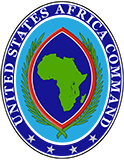 | 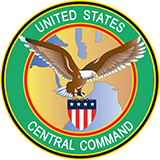 | 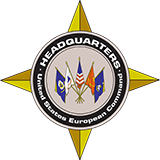 |
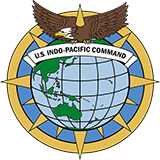 | 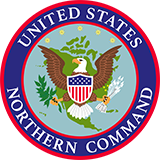 | 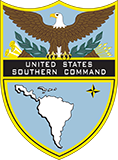 |
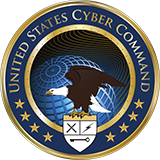 | 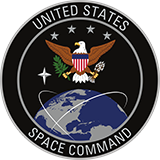 | 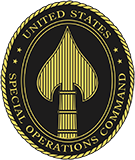 |
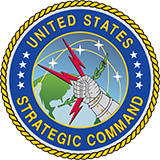 |  |
C1.3.3. Department of Commerce (DoC).
The Department of Commerce (DOC) is the lead organization for the USG’s Defense Advocacy Program, a means by which U.S. Defense industry can submit requests for the USG’s support when competing in foreign markets. DOC works closely with State, DoD, and U.S. missions to engage foreign decision makers on the strategic, military, and economic issues associated with major defense procurements. It also reviews EDA allocations, materiel surveys, and international agreements. The DOC regulates the export of sensitive dual-use goods and technologies and also administers the Defense Priorities and Allocations System, which assures the timely availability of industrial resources to meet current national defense and emergency preparedness program requirements and supports rapid industrial response in a national emergency.


